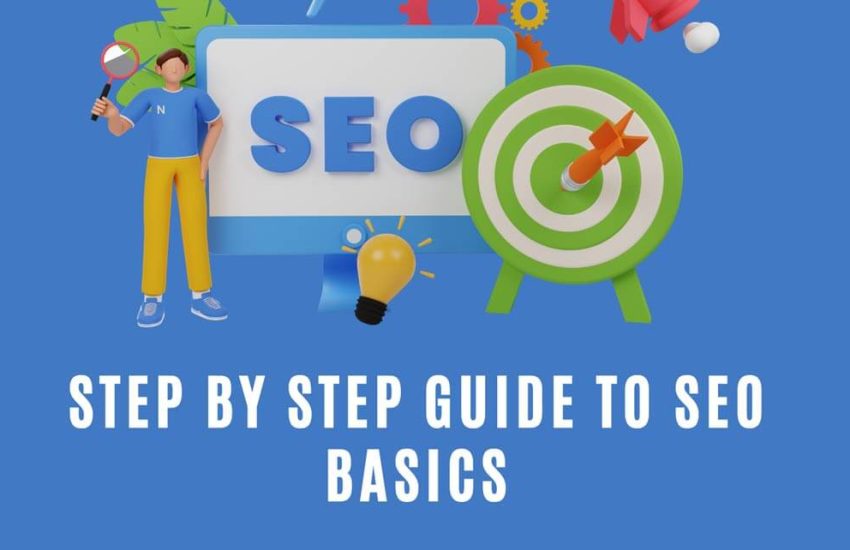Introduction
Search Engine Optimization (SEO) is the key to increasing your website’s visibility on Google and other search engines. If you’re a beginner, understanding SEO might seem overwhelming, but mastering the fundamentals can significantly improve your website’s ranking and organic traffic.
This guide will break down SEO concepts, best practices, and strategies to help your website rank higher and attract more visitors.
1. Understanding SEO Basics
a) What is SEO?
SEO is the practice of optimizing your website to rank higher in search engine results pages (SERPs). It involves improving various elements like content, keywords, backlinks, and technical structure to make your site more accessible and relevant to search engines and users.
b) Why is SEO Important?
- Increases Organic Traffic: Higher rankings bring more visitors.
- Improves Credibility & Trust: Users trust Google’s top results.
- Cost-Effective Marketing: SEO is more affordable than paid ads.
- Better User Experience: Optimized sites load faster and perform better.
2. Keyword Research: The Foundation of SEO
a) Finding the Right Keywords
Keywords are search terms users type into Google. To find relevant keywords:
- Use tools like Google Keyword Planner, Ahrefs, or Ubersuggest.
- Look for long-tail keywords (e.g., “best running shoes for beginners”).
- Analyze competitor websites for keyword insights.
b) Keyword Placement
Once you have the right keywords, place them in:
- Page titles and meta descriptions
- Headers (H1, H2, H3)
- URLs and image alt text
- Throughout the content (naturally)
3. On-Page SEO: Optimizing Your Content
a) Writing High-Quality Content
Google prioritizes valuable and engaging content. Best practices include:
- Writing in-depth, informative articles (1000+ words for competitive topics).
- Using clear headings and subheadings for better readability.
- Adding visuals like images, infographics, and videos.
b) Meta Tags Optimization
- Title Tag: Keep it under 60 characters and include your primary keyword.
- Meta Description: Summarize the page content within 150-160 characters.
- Header Tags: Use H1 for the title and H2-H4 for structuring content.
4. Technical SEO: Making Your Site Search-Friendly
a) Website Speed & Mobile-Friendliness
Google favors fast-loading and mobile-responsive sites. To improve:
- Compress images using tools like TinyPNG.
- Use caching plugins (for WordPress sites).
- Enable a Content Delivery Network (CDN).
b) Indexing & Crawlability
- Submit your sitemap to Google Search Console.
- Use robots.txt to guide search engines on what to index.
- Fix broken links and remove duplicate content.
5. Off-Page SEO: Building Authority with Backlinks
a) What Are Backlinks?
Backlinks are links from other websites pointing to yours. High-quality backlinks from authoritative sites boost rankings.
b) How to Get Backlinks?
- Guest Posting: Write for other blogs in your niche.
- Broken Link Building: Find broken links on other sites and suggest your content.
- Social Media Promotion: Share content to gain organic backlinks.
6. SEO Analytics: Measuring Success & Improvement
a) Tracking Performance
Use tools like:
- Google Analytics: Track traffic and user behavior.
- Google Search Console: Monitor site indexing and ranking.
- SEMrush/Ahrefs: Analyze competitors and backlinks.
b) Key SEO Metrics to Monitor
- Organic Traffic: How many visitors come from search engines?
- Bounce Rate: Are visitors leaving your site too quickly?
- Conversion Rate: Are visitors taking desired actions (sign-ups, purchases)?
Conclusion
Mastering SEO takes time, but with consistency and best practices, you can improve your website’s rankings and drive organic traffic. Start by applying these fundamentals, and as you grow, experiment with advanced SEO strategies.
Ready to optimize your website? Start implementing these SEO techniques today and watch your rankings soar!


Your blog brightens my day like a ray of sunshine. Thank you for spreading positivity with your words.
You really make it seem so easy with your presentation but I find this matter to be actually something which I think I would never understand. It seems too complicated and extremely broad for me. I’m looking forward for your next post, I will try to get the hang of it!